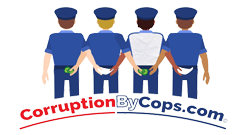COP WATCH BAKERSFIELD
October 5, 2022
US Compliance Enforcement – Securities
October 5, 2022
How corrupt Baltimore cops used the badge to steal
October 5, 2022
In a nod to JFK, Biden pushing ‘moonshot’ to fight cancer
October 5, 2022










